Actualization Is a StairMaster But You're Telling Me to “Lock In?”
if i had legs i'd kick you, urchin and 'the great lock in of 2025'
The actress Rose Byrne looks up into a pillar of blinding white light. The hole of light, stemming from her apartment’s ruptured ceiling, coats her in a violating glow. She, and we the audience, squint, our pupils unfit to capture the immediate glory emanating from above. Trumpets sound out from the ceiling’s wound, tilting our curiosity to what lies up there while we are down here, trapped and floor-bound. Still, we strain — our eyes, her palms — curious to grasp at the white light, so clearly visible yet so distinctly out of reach.
Such is one of the many arresting scenes in Mary Bronstein’s film If I Had Legs I’d Kick You, where Byrne’s Linda is flattened by numerous crises at once — managing a sick daughter’s unwavering medical schedule and treatment goals while her husband is away, balancing her absorbing career as a psychotherapist with clients at various levels of need, overseeing the repair of a mysterious hole in her apartment ceiling caused by an unfortunate pipe burst, and navigating the subsequent displacement it causes her and her daughter, spending unforeseen weeks in a motel while her apartment contractor ghosts her frenzied calls. The terror of being a parent, specifically a mother, is on display in the psychological drama, set through a series of anxiety-wrenching ordeals that rest squarely on Linda’s shoulders. The hole, gaping until the very end once her husband finally becomes involved — a subtle wink from Bronstein on a father’s capacity to swoop in and ‘save the day’ after an exhausted mother has already expended every aspect of herself to hold a home together — represents both the decay of her sphere of control, crushed under the foot of the burdens of her life, but also an escape. She becomes fascinated with the hole, visiting it as her contractors miss deadlines, causing her to yield and unravel psychologically over the course of the film. Linda asks for help countless times and is denied it at each moment; her husband, her therapist, the medical system, and the curt motel concierge1 all fail to aid her. Even her daughter resists her pleas for support. The sound design adds to the weight of her terror; her daughter’s feeding tube continues to beep, her cellphone continues to ring, and Linda is not in control. In an effort to cope, she turns to substances (a Pinot-griot-and-ganja-mother like the best of them) to supplement the agony of the weight of life, but also the responsibility that is solely hers to own, which feels heavier by the minute. It persists.
Sometimes life can feel like this: a continuous climb of crises that are determined to gas you out as you drudge onwards. Hopefully, the direction you’re going is up, but sometimes the view, no matter how far you climb, is the same or worse. You are stuck. Like a stairmaster, there is no final destination, only the next step, and with each additional heel — a sinking sand of steps — you feel further exhausted, simultaneously in the same place. “There’s always going to be another mountain,” Miley Cyrus once said on her poetic ballad ‘The Climb.’ Don’t we know it?
What was most striking to me was how mundane the terrors of If I Had Legs I’d Kick You are. To be demonstratively reductive, what is haunting the protagonist is a job, her home, and her child — important things that a lot of people expect to have and excel at. We are told these are needs. We are taught that to feel ‘actualized,’ we must ascend all five levels of Maslow’s Hierarchy. When we don’t, we feel incomplete, and stay on the StairMaster to actualization. In the case of Linda, the structure of needs, centered around the demands of motherhood and maintaining a family unit, is failing her. It seems like a sham. The gap in fulfillment expands, the chasm in her sanity broadens, and the hole in her ceiling persists. Actualization is a StairMaster and, with every crisis, the steps only become wider.
In Urchin, Harris Dickinson’s directorial debut, the weight of life is also heavy on the protagonist, Mike, albeit for different reasons than Linda. In the first scene, Mike wakes on the streets of London to the sound of a God-fearing woman preaching loudly, beckoning to those hustling on the street in the midst of a harried commute, “Have you heard about the Lord?” These are the first words of the film, an offer addressed to whoever will listen, and Mike, homeless and dishevelled, woken up by the call, brushes the woman off and asks her to quiet down. He does not have time for the actualization of the Lord when his physiological needs are barely being met. The exchange renders itself as satire, equipped with biting humour and critique.
Over the next ninety-nine minutes, we watch Mike struggle to climb his way out, wading through the thick waters of addiction and odd jobs, social worker check-ins, and petty crime. When Mike questions a social worker about how to maintain his temporary housing after he has confirmed work, his inquiry is interrupted by the beeping of the worker’s lunch in a microwave, her bloated working hours causing her to eat during their session. Later, during a probation check-in, we notice Mike dissociating during a moderated discussion with a civilian he has harmed. The slippage in the effectiveness of the city’s social systems is apparent, but no one is really paying attention. No one is aware that they aren’t moving. This is a sharp juxtaposition to Linda’s psyche, where she is acutely aware of her immobility and the fact that she is falling behind. She is at a higher tier on Maslow’s Hierarchy of Needs than Mike, which allows her to advocate for herself, but still, her environment prevents her from moving. They are all crabs in the bucket.
In Urchin, the environment of London is harsh and exhausting, a cacophony of concrete and noise. Dickinson expertly captures the tough atmosphere through the layered distractions of street walkers, addicts, and trash, but never fails to depict its community – the uncles playing dominoes, the lovers sharing a drunk kiss on the curb. There’s a sublime romance to it, the Jamaicans, Slovaks, and Arabs all together. London is a thorny wilderness, yes, but Dickinson’s gaze renders a home, too. It’s a vibrant vision of London’s homeless crisis that does not strip its subjects of humanity or sensationalize its terrors.
As Mike attempts to climb upwards, we are greeted with moments of surrealism that feel closer to nirvana than a daydream. These lapses in reality allow us to explore Mike’s interiority, ranging from voids in the cosmos to microscopic organism mutations to silent scenes in caves and grottos. The contrast between his lived reality is stunning, as these settings offer a bit of reprieve from his chaotic environment. In a way, it feels like he is offered the dignity to make a home in his mind when all else fails him.
Rather than solely criticizing the failure of the government’s ability to mend the housing crisis, we also see how Mike exacerbates his dire circumstances with his own poor decision-making. Early on, he purchases a CD of positive affirmations to help him get in the mindset of ascending, but over the course of the film, we watch him become tainted by the soils of London and turn to vice. Like Linda, he is a victim of his environment but also a creator of his misfortune. His agency humanizes him but forces the audience to question how much of this is an actual choice rather than a set of shitty options he was given. Mike, frustrated by his inability to manifest his way out of a burdened reality, eventually destroys the CD player. His surreal vignettes remain.
How can one keep their head above water when the tide continues to rise? I learned that an urchin is British slang for a raggedly dressed child of the slum, but also that sea urchins can’t swim. They are bound to the ocean floor, never climbing past their environment, never ascending beyond their base set of needs.
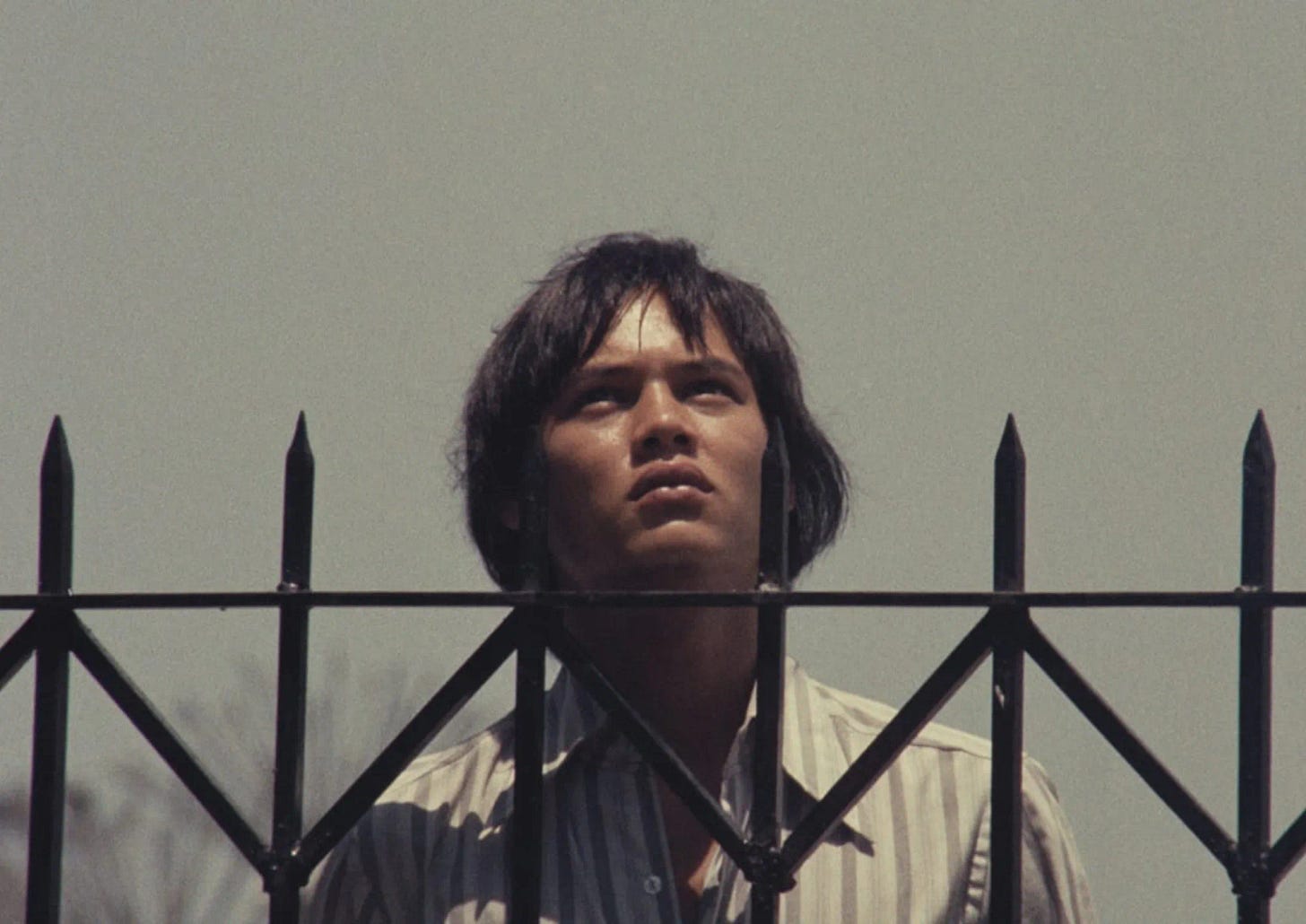
Lino Brocka’s Manila in the Claws of Light is a spiritual predecessor to Urchin, one that Dickinson gladly draws a connection to. I first heard the filmmaker mention the film to Letterboxd on a red carpet, and so, when he curated a series of films that influenced Urchin at the Roxy Cinema, I jumped at the opportunity to see this film in particular.
Claws is a Filipino neo-noir masterpiece about the descent of a young man named Julio. He arrives in Manila from the province of Marinduque, in search of the woman he loves. Throughout the film, we witness the toll of the environment of Manila on Julio. As he struggles to find his footing in the vicious Manila, he encounters dangerous work on the construction site, prostitution, crime, and homelessness.
It parallels Urchin in its ability to showcase setting as an antagonist; in Brocka’s film, it’s Manila and its corruption that leads to the spiritual rot of the protagonist, while in Dickinson’s feature, it’s the streets of London that keep our lead entangled, unable to ascend. When contrasted with If I Had Legs I’d Kick You, it offers another axis of comparison, the idea of chasing a family unit — the love and belonging tier of Maslow’s ladder — causing great emotional turmoil. In all, the challenge of building and maintaining a home is at the heart of all the protagonists’ tension, while their setting — familial or urban — constricts them in place.
It should be a surprise to no one that contemporary society tells us that the solution to this is to ‘work harder.’ Not only is this mirrored in the three aforementioned films where the protagonists are told to dig deeper and anchor their commitment in labour to ascend their circumstances, but this is also reflected in the culture today. The final few months of the year have been popularly coined as “The Great Lock In of 2025,” a trend heavily bolstered by TikTok prophets, where one must isolate and grind their way to a better life for 2026. It marries the stark focus of “cuffing season” with the capitalist drive of “the girl boss” era. It’s relentless, if not offensive. It’s robotic, if not inhumane. To suggest that you can grind your way out of your circumstances is maybe a positive thing, something that I would like to believe in, but it’s useful to inspect the source of these beliefs. Where do these values that prioritize output over our humanity come from? What does it mean to be telling each other to ‘work harder’ in times like today, when faith in the government is at a low and institutions fail us? When our tax dollars fund a Palestinian genocide, and close to twenty billion dollars a year is used to fund ICE to tear families apart. The system isn’t working for us, so we have become engines in the system, locked in, ready to operate, with the hopes of ascending. We have no faith in the systems, so we put faith in ourselves, and at this moment, I don’t know if that is powerful or tragic. What I admired about Urchin and If I Had Legs I’d Kick You was their ability to critique a failing system while allowing their characters to at least try and not solely be victims of it. That feels a bit like the times we find ourselves in today. I do believe we have the power to ascend our circumstances, and some of us are better equipped than others, but that doesn’t come without an acknowledgement of the realities of our environment. I’ll let you watch both films to see if any of the protagonists climb their way out.
In the final twenty minutes of If I Had Legs I’d Kick You, there was a disturbance in the theatre I watched it in. A woman behind me began to scream, pulling at my seat for support as she launched herself upwards to tell me that she needed to get out of the screening room before ‘something bad happened.’ The woman, who seemed well adjusted prior to the film, began to hiss to me in a thick New York accent that she was finding the film ‘psychologically damaging’ and ‘triggering.’ In that moment, I sort of glared at her stupidly, rattled that she was disturbing such a key part of the film. In my mind, I was like, “Yeah, it’s a psychological thriller, so… it’s going to be psychologically thrilling, mama,” but something in her eyes told me to keep my mouth shut. At times, the world works this way, where you are made to believe that the best way to acknowledge someone’s humanity is through silence. She exited the movie, and I stayed, watching as the film became even more thrilling in its entirety. I don’t regret it.
At the end of the movie, I chucked the remainder of my popcorn in the trash and went to the bathroom. When I returned to the lobby, the woman was waiting for me, her words fumbling out of her mouth about how ‘wrong’ it was for the theatre to screen such a movie without the appropriate warning. She clearly just wanted to be heard. In that moment, what she needed was someone to validate what she thought was an intrusion of psychological safety. Instead, I nodded politely and took a picture of the poster. I posted that the movie was like “uncut gems for moms,” and ascended the movie theatre stairs, climbing upwards step by step, leaving the babbling woman to deal with her fit of terror alone. This I do regret.
Thank you for reading. If it’s within your ability, please consider supporting the organizations below:
Amica Center provides legal services for individuals to help navigate the immigration system in the U.S.
International Rescue helps rebuild Gaza by providing aid to families in need.
And, if you’re reading this from New York, please remember to register to vote and consider supporting Zohran Mamdani. You can read about his platform here.
My serialized novella ‘Come If You Want’ has arrived. Read the first chapter here:
Come If You Want - Chapter One
You are reading ‘Come If You Want,’ a serialized novella by Brendon Holder. This is the first of four chapters.
Read More LOOSEY
Would you rather be hot online or in person?
In the final gasps of summer, I encountered a tweet that read like a prophetic warning: Fall is approaching, the body can’t save y’all anymore, face gotta eat!
"This Isn't Sex and the City"
When Rome burned in the Great Fire of 64 AD, it is said that Emperor Nero calmly gazed out of his palatial window and played the violin, but here in New York, the boys play Clairo and are called performative for it.
LOOSEY is a newsletter about culture, art, technology, and the way we live. If this is something you like, consider subscribing and sharing. Let’s be friends on Instagram.



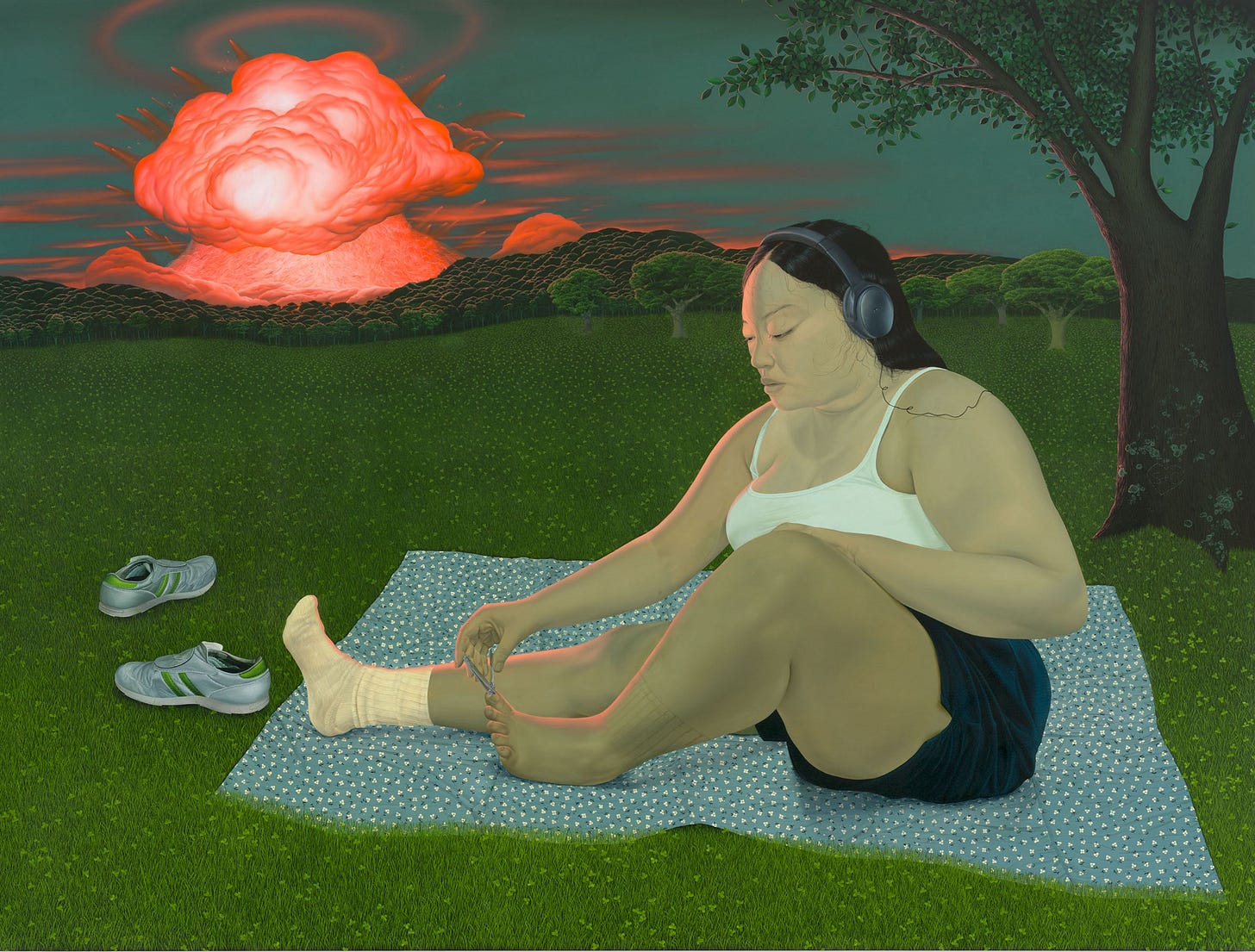
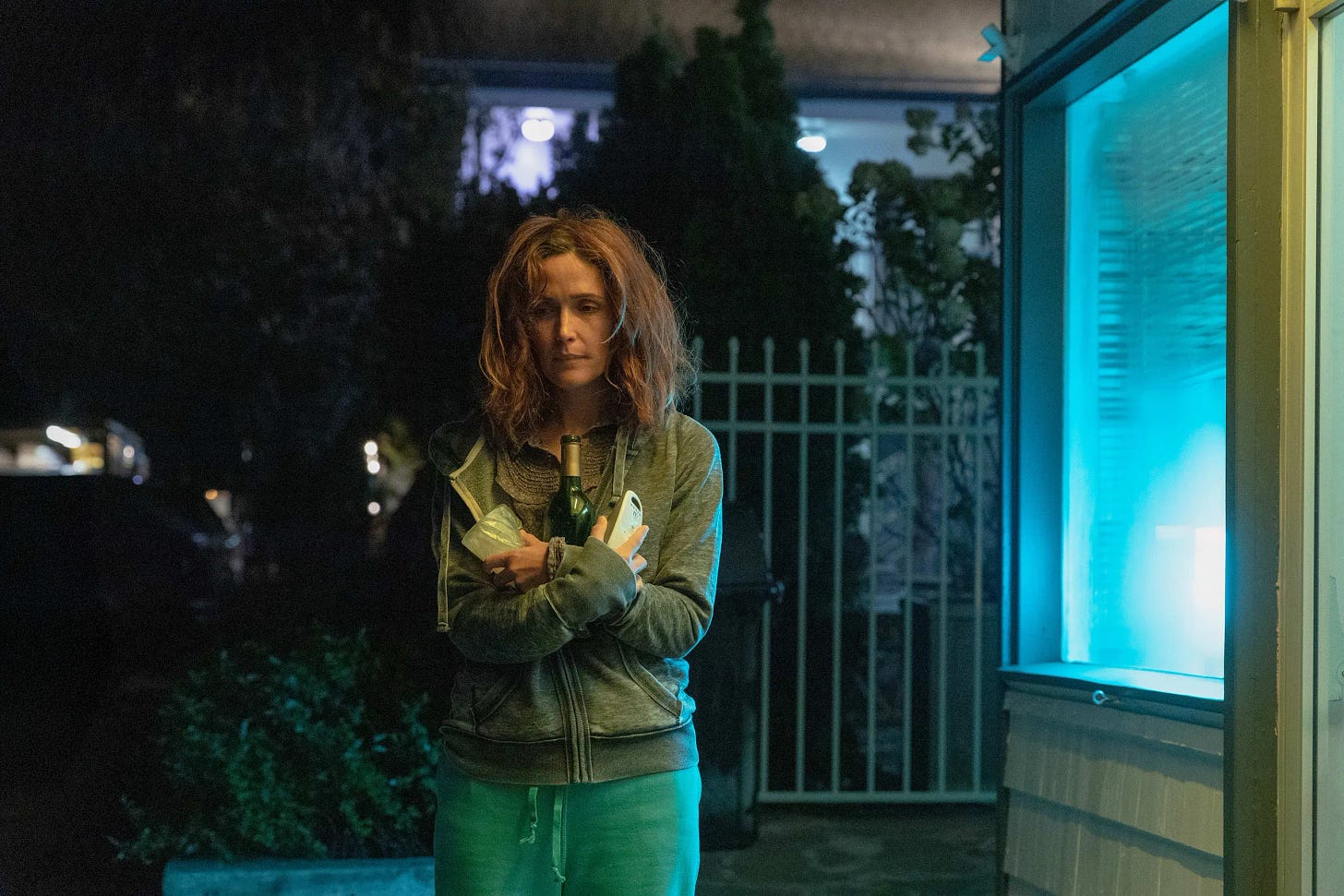
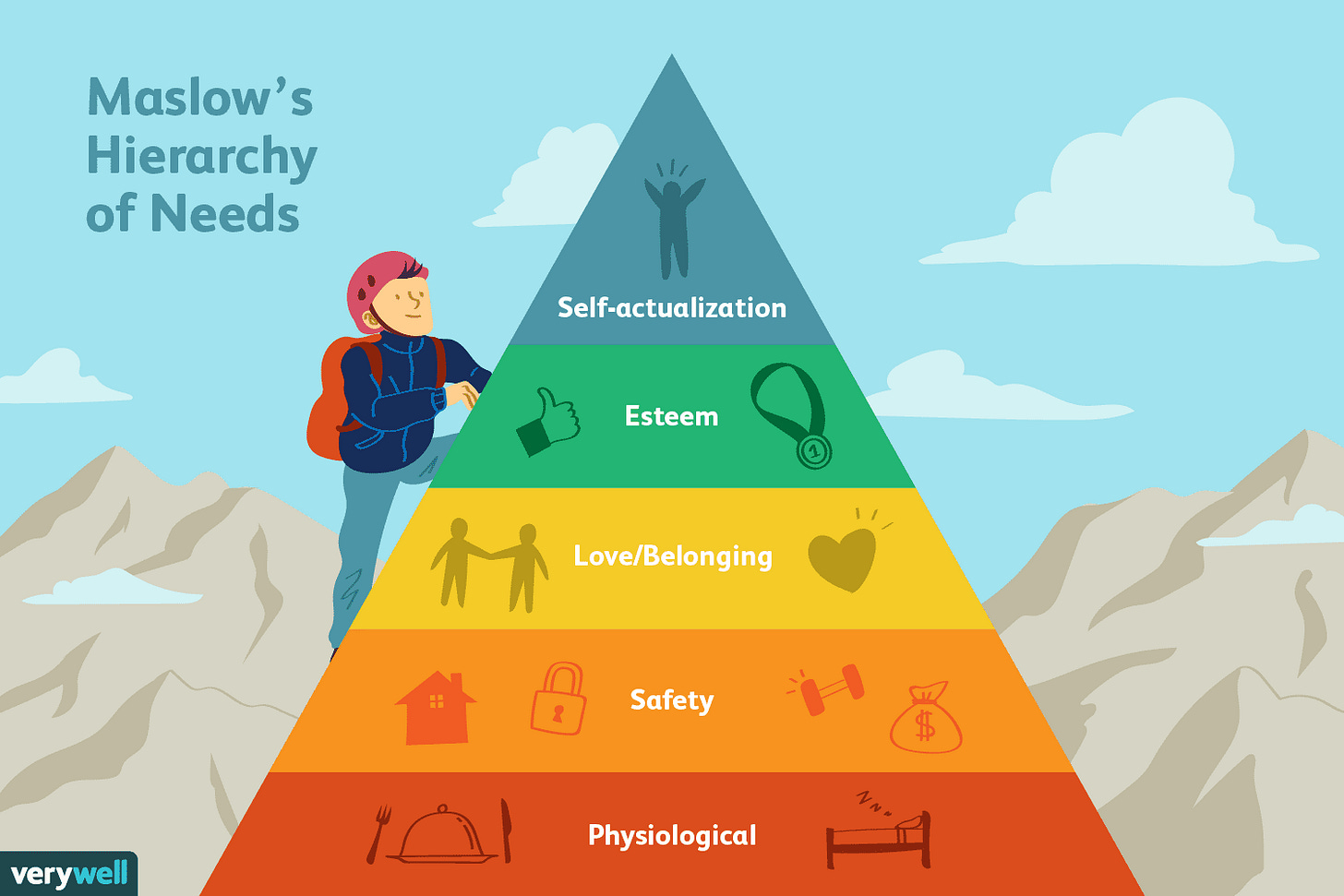
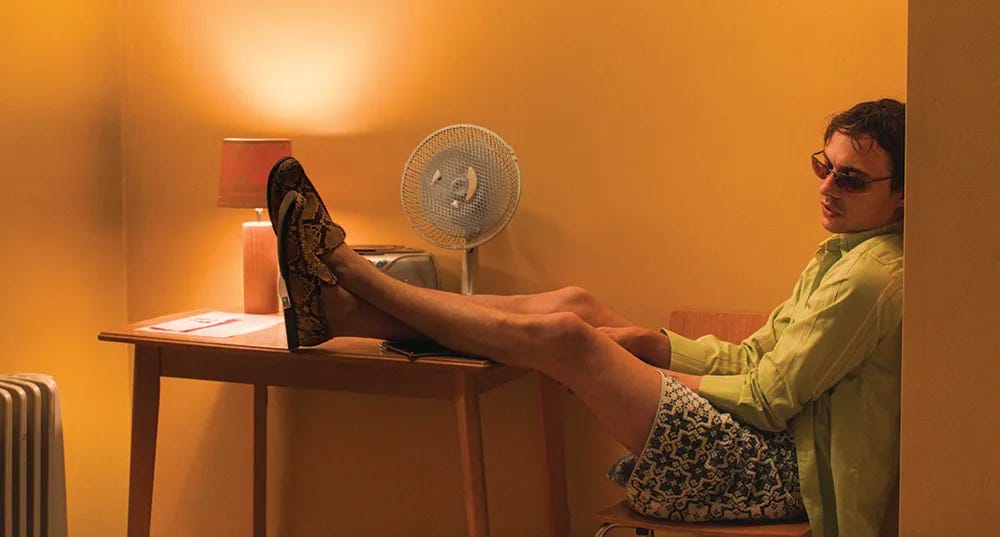
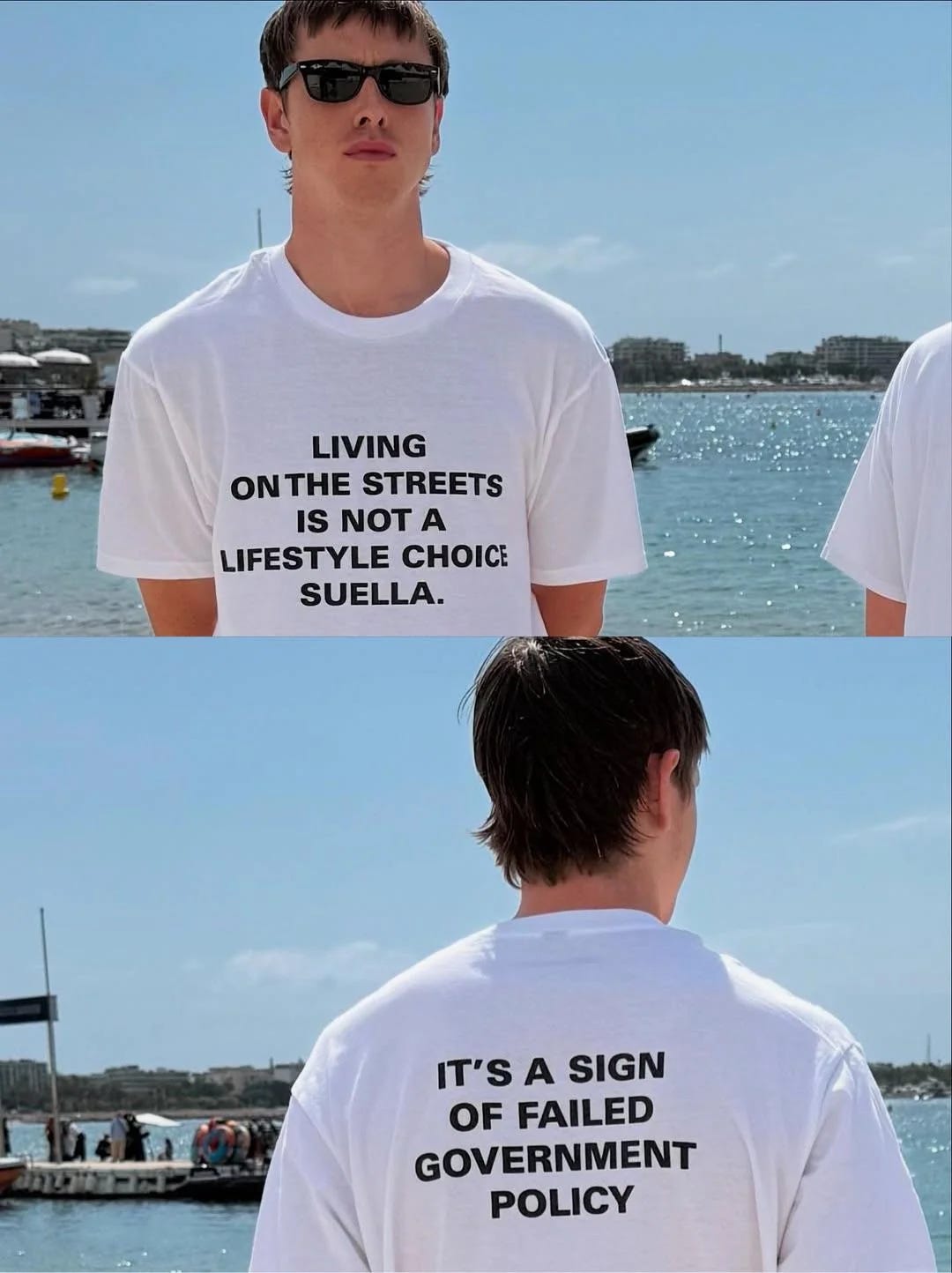
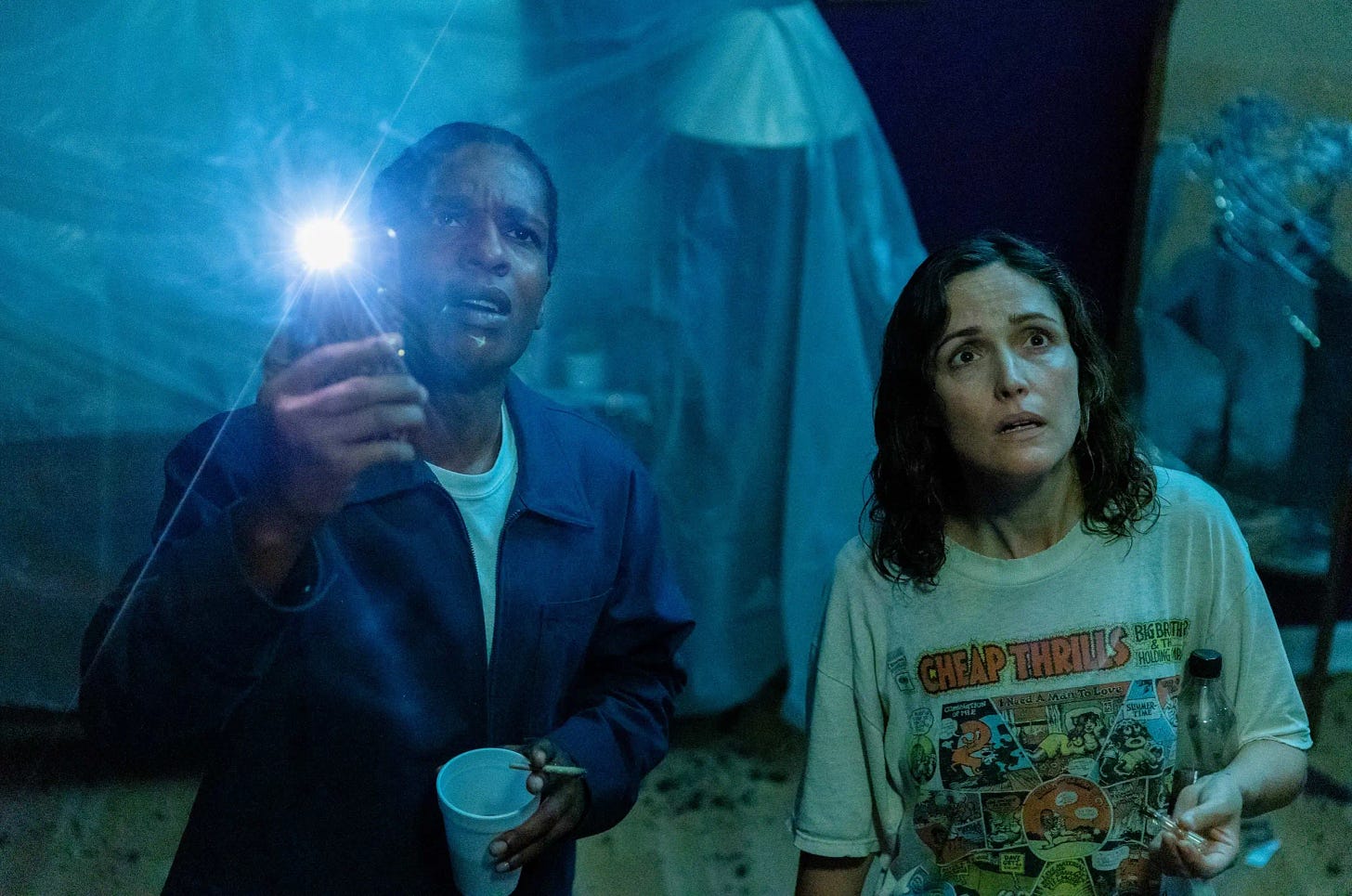
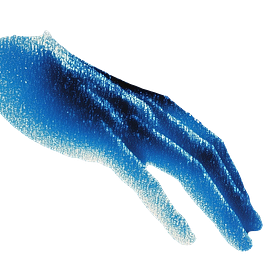
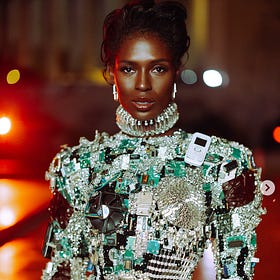
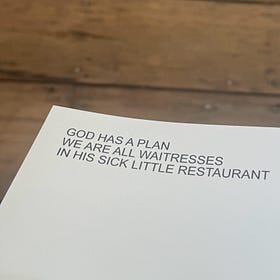

Fantastic as always. Can’t wait to see these films
so i saw you post this last week and i saw urchin about ten days ago, and i’m finally back now that i’ve watched if i had legs i’d kick you.
you really compared the complexities of both protagonists quite well here, as i also thought, “damn they really can’t escape their fate,” while also thinking, “perhaps that was a poor decision.”
sometimes you truly are just the product of your environment and that fogs your judgment (re: urchin) and your decisions don’t only haunt you but further your inevitable spiral (re: if i had legs i’d kick you). i like how both movies—in a similar fashion to sorry, baby—left me with a lot on my mind, especially how i disassociate to covertly escape difficult moments. great work here! really need to watch your third recommended film